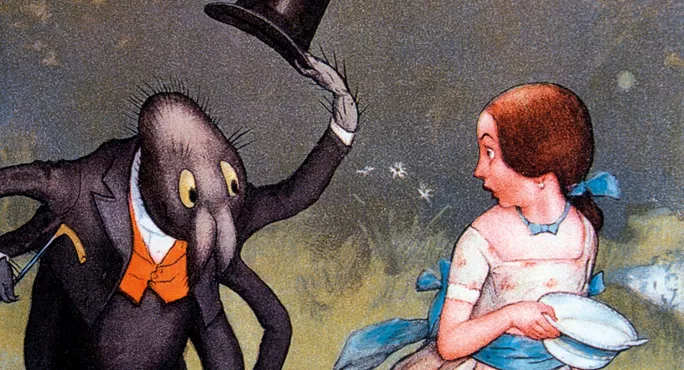I imagine most of you could recite The Grand Old Duke of York. But we can’t say that is the case for children today,” chief inspector Amanda Spielman said a couple of months ago, suggesting early years teachers (and parents) were not teaching “old-fashioned” nursery rhymes (bit.ly/SpielmanRhymes).
That came as news to them - and a large contingent of them took to social media to tell her so.
The early years sector is having a torrid time of late with Ofsted - it’s fair to say last month’s Bold Beginnings report was received as warmly as a bucket of cold custard. Indeed, when it comes to the inspectorate, EYFS teachers are finding out that when they are up, they are up and when they are down, they really are down.
However, that’s not to say that the chief inspector’s basic point on nursery rhymes wasn’t right: they are an integral part of the early literacy process. There’s no doubt that disadvantaged children experience a so-called word gap and she is right to highlight that early years teachers “have such an important job… to fill the gaps for those children who might not be exposed to the same range of vocabulary at home”.
It’s a moot point, though, whether some of the content of traditional rhymes would be much use to them. Just what would they do with the information from Cock-a-doodle-doo that “my master’s lost his fiddlestick”?
And there’s the violence of course. There would be a clamour for banning some of the rhymes from nurseries if they were written today. The old woman who lived in a shoe whipped her children soundly before she put them to bed. That poor old man who wouldn’t say his prayers was thrown down the stairs and Oranges and Lemons warns of a chopper coming to chop off your head.
‘Wonderfully nonsensical’
Undoubtedly, nursery rhymes can be frightening, but they do contain some important cautionary lessons, as well as promoting risk-taking and daring. And that’s something we need more of for children if we want them to develop grit and resilience, according to Lenore Skenazy, US blogger and founder of the Free Range Kids movement. There’s no point teaching children to have character, she argues. Instead, let them develop it by taking risks - go sit on a tuffet and face up to that spider, or go up the hill and maybe come tumbling down.
But the most important thing about these “wonderfully nonsensical rhymes”, is that they are the Trojan horse of literacy, says poet Roger McGough. Through them, children are exposed to a panoply of gifts - story structure, oral and written rhythm, literary techniques, writing to entertain, as well as a little history.
And nursery rhymes are fun. That may be a toxic word in some pedagogical circles, but if we want our youngest children to enjoy learning and engage, school needs to be somewhere they want to go - after all, they are going to have a further 14 years of it. That does not mean fun instead of learning, but fun because they are learning.
All this is why so many EYFS professionals still teach nursery rhymes. And at a time when Ofsted is being depicted as trying to formalise learning too much, let’s not forget that though her delivery of the message was perhaps confused, the person championing these more playful and interactive methods of learning is none other than the grand old chief inspector herself.
@AnnMroz




